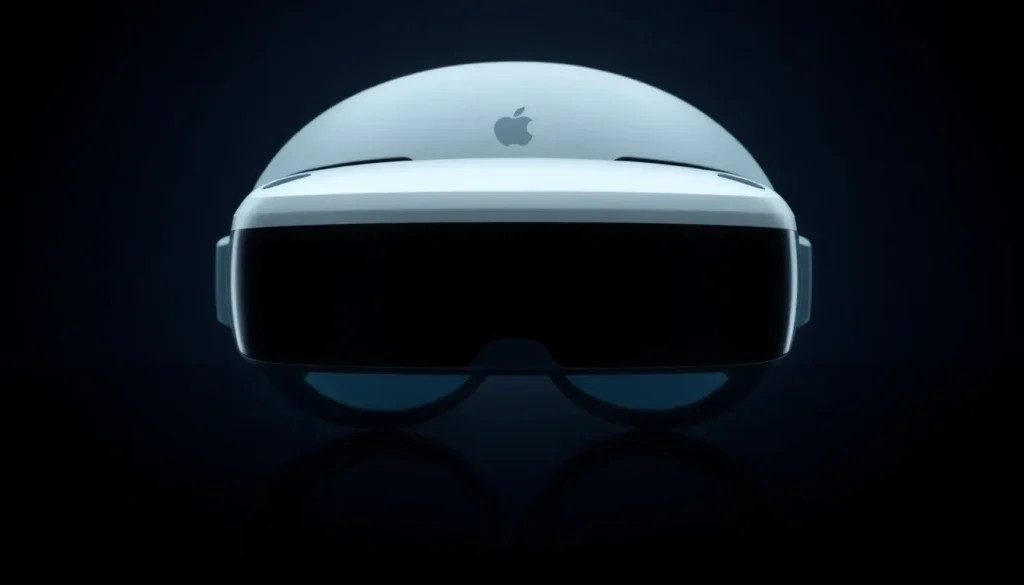Apple confirms it won't accept your old Vision Pro headsets

Apple's Vision Pro has generated considerable buzz since its announcement, but recent developments indicate that the tech giant is facing challenges with its first-gen headset. With a starting price of approximately $3,500, many consumers have expressed disappointment regarding its value. In a surprising turn of events, Apple has confirmed that it does not accept trade-ins for these headsets, raising questions about the company's future direction in this segment.
Apple's decision on trade-ins for the Vision Pro
During the announcement of its latest products, including the M5 iPad Pro and 14-inch MacBook Pro, Apple made a noteworthy statement in the fine print regarding the Vision Pro:
"Apple Vision Pro is not eligible for trade-in. Customers can trade in an eligible product and apply the trade-in value toward the purchase of a qualifying new device or added to an Apple Gift Card."
This policy raises eyebrows for several reasons. As Apple aims to cultivate a thriving Vision Pro ecosystem, allowing trade-ins could provide consumers with a sense of assurance regarding residual value. By not offering this option, Apple appears to suggest a lack of confidence in the headset's longevity in the market.
The pricing landscape of the Vision Pro
With a starting price of $3,499, the new M5 Vision Pro is available in various storage capacities: 256GB, 512GB, and 1TB. This pricing strategy positions it as a premium product, but with the recent feedback from customers regarding its limited utility, questions arise about whether it can justify such a high price point.
- 256GB model: $3,499
- 512GB model: $3,699
- 1TB model: $3,999
Given the significant investment consumers must make, many expected a more robust trade-in policy to mitigate the risk of being left with outdated technology.
Apple's strategic shift towards AI-powered devices
A potential explanation for Apple's refusal to accept trade-ins for the Vision Pro lies in its strategic pivot towards AI-enabled products. Reports indicate that Apple is shifting focus to develop smart glasses that could compete with Meta's offerings in the rapidly evolving AI landscape.
- Possible launch of AI-powered smart glasses in 2026
- Features may include integrated cameras, microphones, and speakers
- Enhanced interaction with Siri, Apple's AI assistant
This move reflects a broader industry trend, as tech giants scramble to establish a foothold in the burgeoning AI market. By halting work on the next iteration of the Vision Pro, Apple appears to be prioritizing mass-market appeal over its previous premium strategy.
Manufacturing changes: From China to Vietnam
In addition to the trade-in policy, another significant development is the shift in Apple's manufacturing strategy. Recent packaging information about the M5 Vision Pro suggests that it is being assembled in Vietnam rather than China. This transition is part of a broader effort by Apple to diversify its manufacturing locations and mitigate risks associated with geopolitical tensions.
Factors influencing this shift include:
- Desire to reduce dependency on Chinese manufacturing
- Geopolitical stability in Vietnam
- Trade agreements that favor manufacturing in Vietnam
By relocating production, Apple aims to ensure smoother operations and greater resilience against potential disruptions in the future.
The implications of not accepting trade-ins
Apple's decision to forgo trade-ins for the Vision Pro could have several implications for both consumers and the company itself:
- Consumer skepticism: The lack of trade-in options may deter potential buyers who are hesitant to invest in a device with uncertain resale value.
- Market positioning: It may indicate a shift in Apple's market strategy, moving away from high-end products towards more accessible offerings.
- Long-term brand loyalty: Consumers might question Apple's commitment to supporting its products over their lifespan, affecting brand loyalty.
Community reactions and future outlook
The community's response to Apple's Vision Pro has been mixed, with many consumers voicing concerns over its functionality and long-term value. Discussions on platforms like Reddit have sparked debates about the headset's overall viability and Apple's strategic decisions moving forward. For those interested in a deeper dive, check out this insightful video discussing the future of the Vision Pro:
As Apple navigates these challenges, industry analysts will closely monitor its next steps in the augmented reality and AI spaces. With rival companies advancing quickly, Apple's ability to adapt and innovate will be crucial to its future success.
Conclusion
Apple's decision to exclude trade-ins for the Vision Pro speaks volumes about its current strategy and market positioning. As the company pivots towards AI-powered devices, consumers and industry experts alike will be watching closely to see how these decisions impact its brand and the broader tech landscape.




Leave a Reply